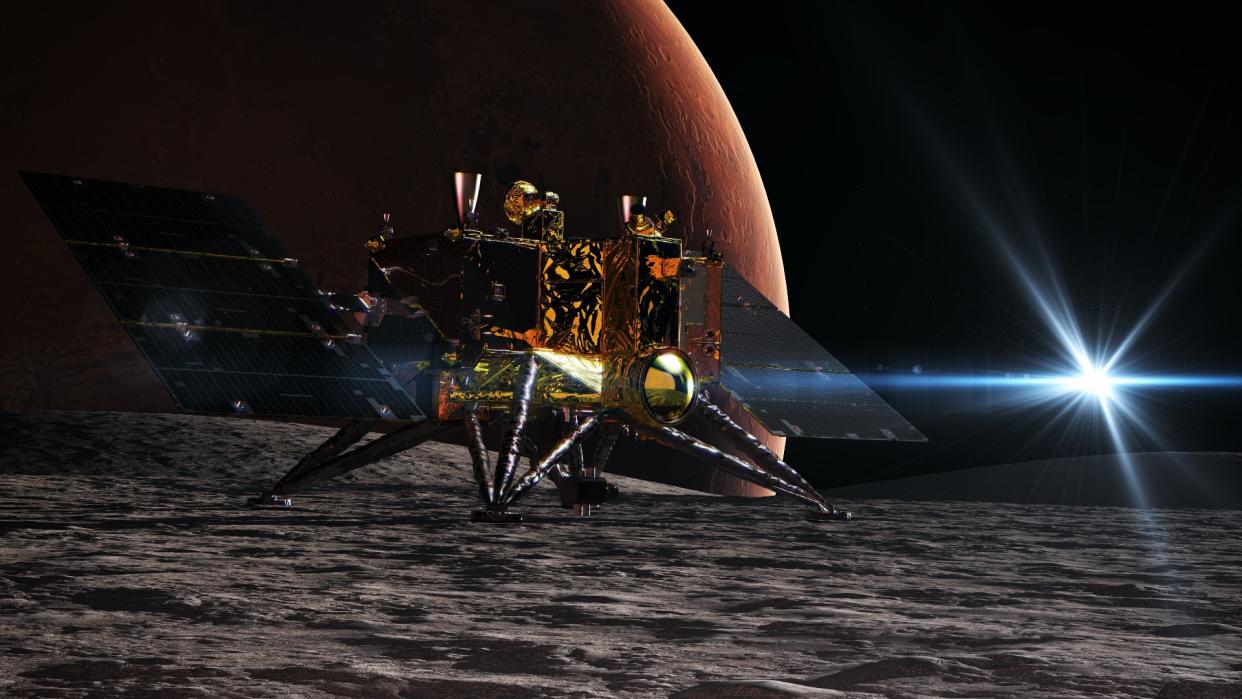Japan may delay its Mars moon sampling mission MMX due to rocket problems

Japan’s ambitious mission to explore the two mini moons of Mars could be facing a lengthy delay.
The Japan Aerospace Exploration Agency’s (JAXA) Martian Moons eXploration (MMX) is scheduled to launch in September 2024, taking advantage of a once-every-26-months launch window to the Red Planet.
Arriving in Mars orbit in August 2025, coinciding with the World Expo in Osaka, MMX would attempt landings on Phobos to collect a minimum 0.35 oz (10 grams) of samples. It would then make flybys of the smaller moon Deimos before a module containing the samples is sent back towards Earth, arriving in 2029.
Related: New Japanese spacecraft aims to explore the mysterious moons of Mars
However the agency’s new H3 rocket, which will launch MMX, failed on its debut flight in March. JAXA stated last month that it is aiming to attempt a second launch of the flagship H3 rocket by the end of March next year, NHK reported.
The outcome of that mission—which will benefit from lessons learned and measures taken after the failure—will likely determine if MMX can launch on schedule.
Further issues would see MMX delayed to late 2026. However rescheduling the mission may prove challenging, as a number of high priority launches will complicate matters, Kyodo News reports.
Related Stories:
— China's Mars orbiter snaps striking shot of Red Planet's larger moon, Phobos
— Giant Impact May Have Created Mars' Moons
— Mars moon mystery: Strange structures found inside 'fearful' Phobos
It is unknown if JAXA would consider using another launcher, such as the SpaceX Falcon Heavy, to launch MMX.
When it does launch, MMX aims to determine if Phobos and Deimos are captured asteroids or fragments that coalesced after a giant impact with Mars. It will also gain new insights into the history of Mars.
The mission will also carry a small rover for exploring Phobos, developed by the German Aerospace Center (DLR) and the French Center National Space Research (CNES).

